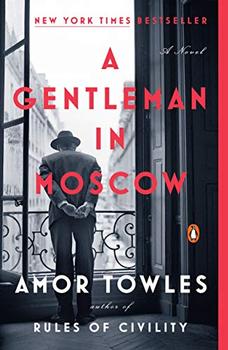Summary | Excerpt | Reading Guide | Reviews | Beyond the book | Read-Alikes | Genres & Themes | Author Bio

On the surface there are many unappealing things about this book; the title, the
main character, the plot, and at times even the setting. So why, one might ask,
has this French novel by Muriel Barbery been translated into a half-dozen
languages? Why has it parked itself at or near the top of France's sales charts
for 102 weeks since publication? Because this book about passion, indignation,
and a hopeless love of art "...has the elegance of the hedgehog: on the outside
she is covered in quills, a real fortress, but...on the inside, she has the same
simple refinement as the hedgehog: a deceptively indolent little creature,
fiercely solitary - and terribly elegant."
When the reader arrives at 7, rue de Grenelle, all proverbial baggage must be
left with the concierge at the door, and Renee Michel has been that lowly
concierge for 27 years. Appearing as a sympathetic character, Renee is
unattractive, single, and solitary. "I am a widow, I am short, ugly, and
plump..." However, don't be misled by such self-deprecation, for pity quickly
turns to admiration when we find that Renee's mind is a veritable Eden in which
the reader is privileged to dwell.
Of service to the affluent residents she lives beneath, Renee is called upon to
handle their daily minutiae. Presuming she is boorish, uneducated, and simple,
her employers carry on unaware of their in-house virtuoso. As the reader is
repelled by their indifference, Renee embraces their ignorance. Knowing she must
maintain the stereotype to preserve her job, her character illuminates the
precarious balance she must strike so as not to tip the social scales. From
burying philosophy books to feigning dispassion toward the Dutch masters, Renee
goes to great lengths to dumb herself down and portray the image dictated by her
position.
Renee's character speaks volumes on class structure, and each interaction
illuminates the stark stereotypes so deeply ingrained in society. Upon the death
of her husband, Renee's reflections leave us stunned as she questions how we
interpret each other's pain and the assumptions we attach to the lives of
others: "Lucien's illness did not strike anyone as being worthy of interest. To
rich people it must seem that the ordinary little people - perhaps because their
lives are more rarified, deprived of the oxygen of money and savoir-faire -
experience human emotions with less intensity and greater indifference..."
Such powerful insights give pause to the unsuspecting reader and come not only
from Renee, but also pour forth from twelve-year-old Paloma. A few floors, yet
worlds away from Renee's loge, the suicidal Paloma lives a posh, but parallel
existence. Deftly used to exemplify the hypocritical and contradictory world of
society's elite, Paloma immediately cuts to the quick, exposing the farce in
which she is forced to live. Unable to swallow the affected liberal gibberish
dished out by her parents and their contemporaries, Paloma gives voice to the
masses as she frets over the "self-reproduction of a sterile elite."
Kindred spirits, Renee and Paloma share an "absolute pitch for false notes or
contradictions." Their frank cynicism provides a hard look at how the social
classes view themselves and each other. From opposite ends of the social strata,
their dual dialogue and position conjoin, drawing attention to the vacuous,
artificial world of the upper class.
While brimming with audacity and indignation, The Elegance of the Hedgehog
is tempered by a smooth infusion of sophisticated humor and a boundless passion
for art. This novel speaks not only of film, music, and literature, but also
reflects on the more subtle and forgotten arts of relationship, perception, and
understanding. This complex mixture results in a searing diatribe on social
class divisions and demands that we call into question our own preconceptions
and judgments. The concepts of art and discrimination cross cultural lines and
Ms. Barbery's frustration with the world and its lack of passion is perhaps why
this work translates so well. Both honest and artfully executed, The Elegance
of the Hedgehog strikes a universal chord leaving the reader much wiser for
the journey.
![]() This review
first ran in the February 5, 2009
issue of BookBrowse Recommends.
This review
first ran in the February 5, 2009
issue of BookBrowse Recommends.

If you liked The Elegance of the Hedgehog, try these:

by Fredrik Backman
Published 2025
#1 New York Times bestselling author Fredrik Backman returns with an unforgettably funny, deeply moving tale of four teenagers whose friendship creates a bond so powerful that it changes a complete stranger's life twenty-five years later.

by Amor Towles
Published 2019
From the New York Times bestselling author of Rules of Civility - a transporting novel about a man who is ordered to spend the rest of his life inside a luxury hotel.
Your guide toexceptional books
BookBrowse seeks out and recommends the best in contemporary fiction and nonfiction—books that not only engage and entertain but also deepen our understanding of ourselves and the world around us.